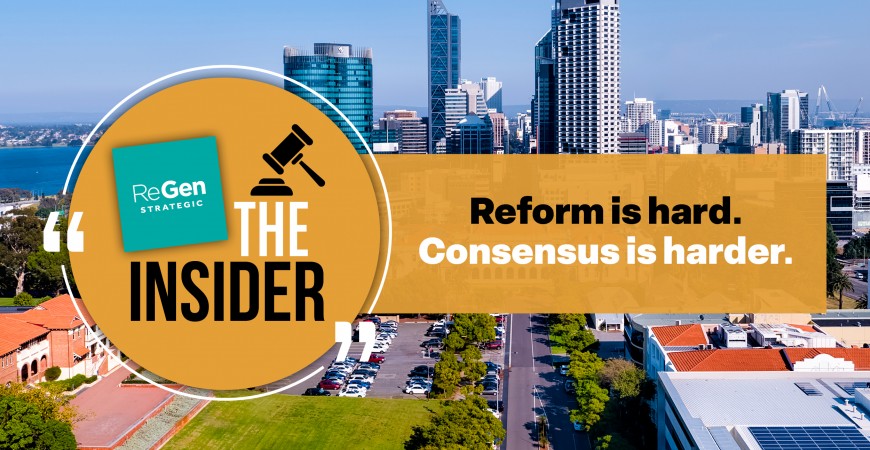Last week’s Economic Reform Roundtable, led by Treasurer Jim Chalmers, was an ongoing step on Australia’s long journey to bridge our current economy to a future economy.
Depending on your viewpoint, this future economy for the coming decades is envisioned to be fairer, more diverse and driven by the adoption of technology.
In the lead-up to formalities for the Roundtable, the reams of newsprint and the din of media interviews by participants, stakeholders and observers offered no shortage of opinions and recommendations – not just for Canberra, but for all levels of government across Australia.
One consistent theme that arose was the need to reduce the complex web of process – whether it be approvals, assessments or compliance - which most of the time has been developed to manage risk. But to borrow a phrase from the UK, an element of ‘jobsworth’ is definitely mixed in there too.
The other undercurrent that governments, proponents and communities will need to tackle through the energy transition is the difficulty in gaining consensus for reform itself.
The boldest ideas and proposals – fundamental changes to tax policy, the rollout of clean energy infrastructure, the modernisation of Australia’s social safety net – will attract both passionate supporters and fierce critics.
Social media, personalised algorithms and partisan commentators make any contentious issue infinitely louder.
It would be an interesting exercise to establish how the economy-shaping reforms shepherded by Bob Hawke and Paul Keating would have fared in the modern media landscape (let alone their respective personalities in an age of cancel culture!).
Similar to contentious developments, the challenging work to design a proposal is now often dwarfed by the difficultly in gaining consensus – whether it be from a community or an industry.
Project proponents know this challenge all too well, with even the most well-intentioned proposals facing criticism, devil’s advocacy and steep regulatory hurdles.
ReGen Strategic works with organisations that are tackling Australia’s energy transition head-on, often at the intersection of clean energy entrants to WA and existing operators seeking to decarbonise at-scale.
The proposals seek to deliver a range of benefits —both individually and cumulatively — to central pillars of government policy, including decarbonisation, economic diversification, regional development and social cohesion.
Much like the challenge in front of Treasurer Jim Chalmers, developers and project teams will need to redouble their efforts to engage early and genuinely with their respective communities of interest.
 ReGen Strategic
ReGen Strategic